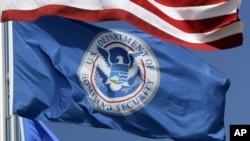The U.S. Department of Homeland Security announced steps on Monday to prevent the fraudulent use of H1B visas, used by employers to bring in specialized foreign workers temporarily, which appeared to fall short of President Donald Trump's campaign promises to overhaul the program.
Trump had promised to end the lottery system for H1-B visas, which gives each applicant an equal chance at 65,000 positions each year.
Lobbyists for businesses who rely on H1B visas, commonly used by the tech sector, had expected Trump to upend the lottery in favor of a system that prioritized workers who are highly skilled and would be highly paid in the United States.
The lottery for fiscal year 2018 opened on Monday without changes.
The start of the lottery was seen by those watching the issue as the unofficial deadline for the Trump administration to enact H1-B visa reform, and the failure to meet that deadline signals that Trump's promised overhaul of the system may be off the table or long delayed.
"More oversight is a good start, but employers can still use the program legally to depress wages and replace American workers. That falls short of the promises President Trump made to protect American workers," said Peter Robbio, a spokesman for Numbers USA, a Washington-based group that advocates for limiting immigration into the United States.
The White House could not immediately be reached for comment.
In keeping with the practice of former President Barack Obama's administration, employers and foreign workers will enter a lottery system where 65,000 workers are permitted to enter the United States to work. An extra 20,000 H1B visas are reserved for workers with advanced degrees.
Last year, the lottery remained open less than a week before the program reached its cap.
Tech companies rely on the program to bring in workers with special skills and have lobbied for an expansion of the number of H1-B visas awarded.
Proponents of limiting legal immigration, including Trump's senior adviser Stephen Miller, have argued the program gives jobs that Americans could fill to foreign workers at a less expensive cost.
The measures announced by DHS on Monday focus on site visits by U.S. authorities to employers who use H1-B visas.
In future site visits, U.S. Citizenship and Immigration Services agents will investigate incidents where an employer's basic business information cannot be validated; businesses that have a high ratio of H1-B employees compared with U.S. workers; and employers petitioning for H1-B workers who work off-site.





